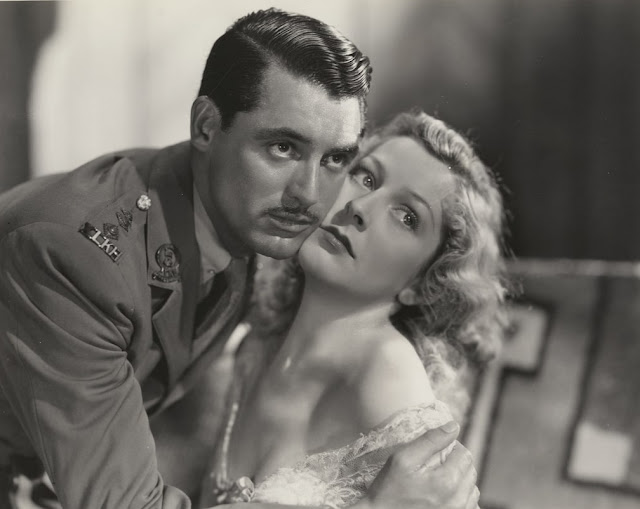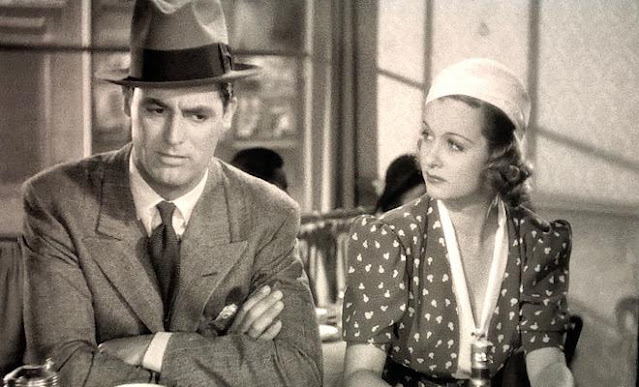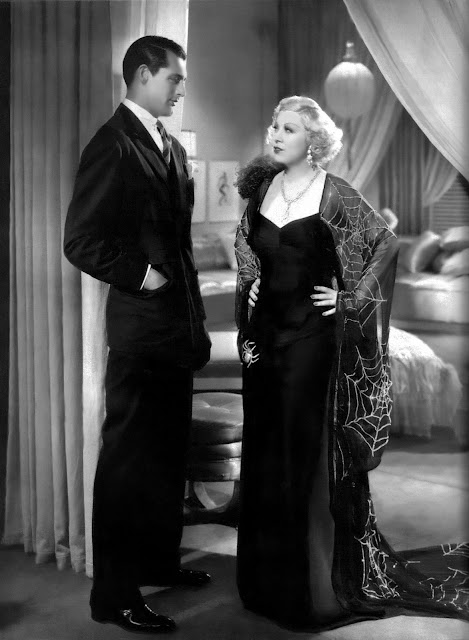"...describes the evolution of an idle bit of gossip in an average American community with considerable freshness and candor..."
 |
| With Nancy Carroll and Edward Woods. |
Hot Saturday - Review is taken from 'The Films of Cary Grant' by Donald Deschner (1973):
"Small-town tongues are wagging and small-town eyes are watching that Brock girl from behind the drawn shades. Hot Saturday, which is from Harvey Ferguson's novel, describes the evolution of an idle bit of gossip in an average American community with considerable freshness and candor, and in the main manages to survive a meandering script and some uneventful writing. Nancy Carroll, as the girl caught in the net of malicious gossip, gives a lifelike portrayal; and she is acutely touching in the final episodes as she searches frantically for someone who will understand and believe her. The denouement is unintentionally ambiguous, and a rather startling conclusion at that; for the girl runs of with the notorious libertine to a marriage in New York which, if one is to believe all the things people say about Romer Sheffield, will be merely theoretical.
The title suggests the social activities of the young people on their day off, the dancing, cheap liquor and furtive amour with which they escape once a week from their routine labors. Some may raise the criticism that the behavior in Hot Saturday is more typical of the years the novel appeared - than of the present.
Ruth Brock, on this particular "hot Saturday", accompanies the crowd to Sheffield's place in the country. Her young man, resenting Sheffield's attentions to the girl, quarrels with her. When she is left alone in the millionaire's house for a few hours and arrives home in his car, the gossip-mongers go to work with a relish. The accumulation of outraged virtues results in Ruth's dismissal from the bank and a violent scene at home. Even her gentle, understanding sweetheart of school days turns against her.
Edward Woods, as the malicious and resentful escort, gives the most satisfactory performance in support of Miss Carroll. Cary Grant is a nonchalant young libertine as Sheffield, and Randolph Scott is solidly virtuous as the boyhood sweetheart.
- Mordaunt Hall, The New York Times
 |
| New Artwork by Rebekah Hawley at Studio36 - Number 6 - Hot Saturday (Lobby Card Style) |
Part Of
For more, see also:
Quote From Today - 28 October 2022









